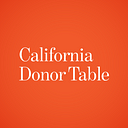CA Recalls and special elections Oh My!
Every year is an election year in CA, and this year is no different. These recall efforts and upcoming special elections across CA will direct our state and have national impacts.
Gubernatorial recall
After presidential election years usually national attention goes to the post-presidential gubernatorial election states of VA and NJ, but because of potential recall of Governor Gavin Newsom California may actually have the first gubernatorial race under the Biden administration. The recall campaign has ties to QAnon, Proud Boys, and other right wing groups, as well as the rest of the state Republican party. It is funded by big Trump donors, some of whom are in CA. It’s riding on the 6 million Trump voters in California.
Getting into the weeds, 1,495,709 valid signatures are required for the recall to be placed on the ballot. As of February 5, the recall campaign has submitted about 1.1 million signatures. Of the nearly 800,000 signatures county registrars have reviewed so far, 668,202 are valid, roughly an 84% validity rate. The deadline for the recall campaign to submit signatures is March 17th. CA’s Secretary of State Shirley Weber will need to certify whether the recall has sufficient valid signatures by mid-May. There would then be a month for signatories to retract their signatures. So roughly July we’ll know whether the recall truly qualified, and if so, it would need to be held in November or December. It’s possible Democrats could delay the vote.
While it’s irrelevant for the outcome, on Election Day 2020 a judge extended the signature deadline for the recall from Nov. 17, 2020, to March 17, 2021 in order to adapt to petition challenges caused by Covid. It’s important to note that unlike so many Republican elected officials, then-Secretary of State Alex Padilla did not contest this decision, and let the democratic process move forward. The extended deadline is why this recall is viable, not Gavin’s vulnerability. Nevertheless, it may get on the ballot.
If the recall gets on the ballot it would comprise 2 questions: 1) Do voters want to recall the sitting governor, and 2) Who should replace him if the first question gets a majority of votes. If the first question results in a majority yes, then the candidate with a plurality in the second question becomes governor. They do not require a majority, and there are no run-offs. The sitting governor can not be on the replacement ballot.
While rightwing forces have been quite strategic (and lucky) in their work to get this on the ballot, as of this date Republicans are in San Diego-centric disarray with regards to their candidates to replace Newsom. There’s major infighting, especially between leading candidates former San Diego Mayor Kevin Faulconer and Trump’s former acting director of national intelligence (and former SD Mayoral aide) Richard Grenell, including San Diego-based former gubernatorial candidate John Cox, with battles including San Diego Congressman Darrell Issa and perennial San Diego candidate Carl Demaio. They represent the reactionary, racist, xenophobic San Diego of the past, even though the current San Diego Board of Supervisors is one of the most progressive ones in the state.
Most of the signatures (and the Republican candidates) have come from LA, Orange County, San Diego, Riverside, San Bernardino, and Central Valley counties. These align almost completely with CDT priority regions, and are a reminder that despite the many wins over a decade, California still goes how these counties go.
For more
Q&A: What you need to know about the attempt to recall Gov. Gavin Newsom
The effort to recall California Gov. Gavin Newsom, explained
California’s Gavin Newsom Will Likely Face A Recall Election — But He’ll Probably Survive It
District Attorney Recalls in LA and SF
There are police union-backed efforts to recall CDT-supported LA DA George Gascon, and SF DA Chesa Boudin. These efforts, and recent attacks on Contra Costa DA Becton, seem coordinated. Our grantee partners SF Rising, LA Voice, and their partners have plans to engage the community, and launch public education campaigns to support their District Attorneys and their progressive reforms. We need to raise over $1 million to support these efforts, please reach out to us if you can support them.
State Senate District 30
The special election primary for State Senate District 30 — the seat formerly held by CDT-endorsed Los Angeles County Supervisor Holly Mitchell — is March 2nd. Asm. Sydney Kamlager (D-Los Angeles) was just endorsed by the Los Angeles Times and Courage California. She joined V4P and California Donor Table (CDT) members for a meet and greet earlier this month, and we endorsed her in her previous race for the Assembly. If she wins over 50% this March, she will avoid the general election race scheduled for May 4. Click here to support Kamlager.
Assembly District 79
CDT and partner V4P recently sent out questionnaires to the candidates for the Assembly District 79’s special election. The appointment of Dr. Shirley Weber as Secretary of State left this San Diego-based seat vacant, and the special election will be held on April 6. The in-depth questionnaire provides critical information on candidates’ stances on policy as well as their electoral prospects. After evaluating the responses, V4P and CDT staff will determine if it is necessary to move forward with a donor/organizer endorsement committee process.
Assembly District 54
If Kamlager wins her SD 30 race, her seat in AD 54 will then come up for a special election. We’ve also sent questionnaires to the prominent candidates eyeing the seat. We will decide whether to interview candidates and move forward the endorsement process after we vet questionnaire responses.
There will be a few other special elections expected to take place this year, so look out for further information about engaging with these races.
